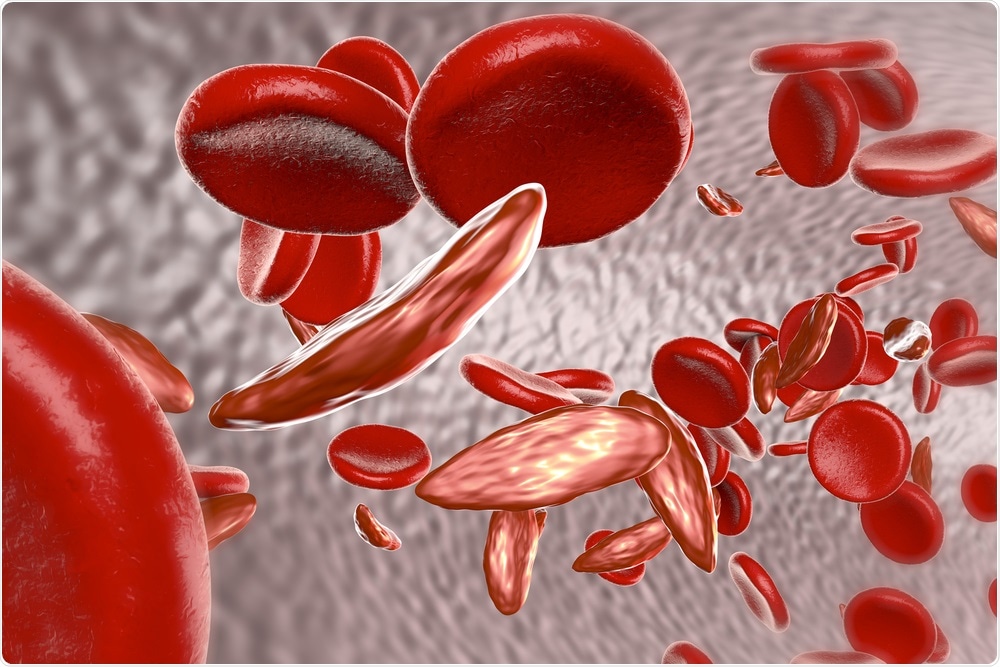Even a single letter variation in a single gene, acquired from both parents, could mean a lifetime of pain and anemia for 20 million individuals, mainly of African origin, across the world. In sickle cell disease (SCD), the red blood cells change into a sickle shape and block the capillaries, thereby cutting off the oxygen supply to the bones, lungs, brain, and other organs.

Sickle Cell Anemia. Image Credit: Kateryna Kon/Shutterstock.com
But in spite of the single genetic origin of SCD, the experience and even the life expectancy of each individual affected by this disease depend on where they live and the social, environmental, and physical factors encountered by them.
A new review recently published by Wiley in the Advanced Genetics journal has proposed that it is not only feasible and essential to examine all these influences to interpret the differences in experience and treatment of this disease, but this method will also improve the healthcare and understanding of all the diseases that have a hereditary component.
This research work, as well as this new insight, comes from the analysis of existing studies on SCD, along with initial evidence gathered by international teamwork exploring the relationships of genetic, clinical, socio-demographic, and environmental factors to pain among people with SCD from three nations in Africa and the African Diaspora—Jamaica, Cameroon, and the United States.
Being the first molecular disease, SCD may well become the first to get an approved molecular treatment from gene editing. Meanwhile, researchers should continue to scale up efforts to design new methods and tools to mitigate and prevent complications in the millions of individuals across the world suffering from SCD, the majority of whom are not likely to have direct access to advanced treatments when they become available.
Even in North America and European countries, the unmet needs of people with SCD are still prevalent.
Large national and multinational integrative studies are needed to better understand SCD globally and to catalyze the translation, implementation and development of locally relevant interventions and policies.”
Study Researchers
Source:
Journal reference:
Royal, C. D. M., et al. (2021) Sickle cell disease is a global prototype for integrative research and healthcare. Advanced Genetics. doi.org/10.1002/ggn2.10037.